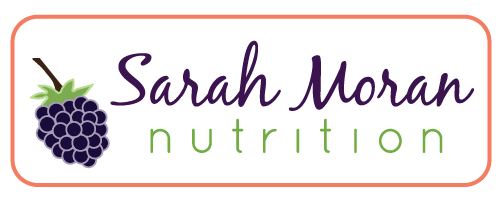Possible Ban On Trans Fat? My Thoughts
/In case you didn't hear, the FDA has proposed regulations on trans fats in foods. If this idea becomes a reality, partially hydrogenated oils will no longer be on the list of food additives that are "generally recognized as safe" or GRAS. While this is still in the works, I thought it would be good to do a little review on trans fats and share my thoughts on this move by the FDA. There are two different variations of trans fats. Some are naturally occurring in small quantities and aren't harmful to humans. The other kind are man-made and incredibly damaging to human health. We're talking about the man-made ones here. In my opinion, artificial trans fats are the worst additive in processed foods. Even a few grams can drastically impact cardiovascular health. Trans fats have come under fire in recent years for this reason, leading to labeling on food packaging and many producers finding alternative fats to use at the public's urging.
If you'd like more info, be sure to check out my previous post on trans fats.
Unfortunately, trans fats haven't totally been removed from our food supply and that is what this proposed regulation would do. Now, I'm generally cautious about any type of legislation or regulation. Often times, laws and regs can have unintended consequences or become outdated as more information becomes available. Also, they can inhibit innovation. We see this happen all the time in meat production when the same regulations are applied to factory farms and processing centers, where no consumer can enter or investigate, and small family farms that welcome their customers to visit at any time and are completely transparent to the consumer. It's foolish to impose the same rules on both factory farms and small, sustainable operations because the risks associated with each are completely different. Additionally, public pressure can create a lot of the changes we desire. Trans fats have been removed from a great deal of foods already because consumer spoke up and companies listened.
Despite all this, I am totally on board with this possible trans fat regulation. For one, the current labeling is weak. If a food has less than 0.5 grams of trans fat per serving, it can be listed as 0 grams on the label. If consumers aren't savvy enough to read ingredients, they can be making what they think is a healthier choice and totally be tricked. If people choose not to be healthy, that is their right, but, when someone is trying so hard and their efforts are squandered by dubious labeling, it's a whole different issue. Also, industrially produced foods should have more oversight for the same reason such laws were put into action in the first place: when buying food that is produced in an industrial environment that is totally closed off and separated from the public, the consumer is unable to make educated decisions about the safety of that food. We would not want any other poison in our food and that is what this change is all about. Trans fats aren't safe and they shouldn't be allowed.
However, in the end, this legislation speaks to a bigger problem. People are eating way too many processed foods and not enough real, whole foods. This bandage may help public health, but there is still a lot of work to do to get people to spend more time cooking and less time worrying about food labeling and regulations.





 It's a common misconception that it's hard for vegetarians to get the protein they need. The truth is, if you're eating a variety of foods including nuts, seeds, dairy, eggs, legumes, and grains, this usually
It's a common misconception that it's hard for vegetarians to get the protein they need. The truth is, if you're eating a variety of foods including nuts, seeds, dairy, eggs, legumes, and grains, this usually  Because protein is so important to our health, there seems to be a lot of concern with getting enough. Well, I'm here to tell you that, if you have enough food to eat and you're getting the variety you should, this won't be a problem. Now, I'm not saying that getting adequate protein is not an issue for some people. Lots of people around the world are struggling with this right now because of lack of access to food or a lack of resources to purchase food. It is a real problem that I do not want to minimize. But, for those of us who have an adequate diet, getting enough protein is usually not a concern.
So how much protein do we need? Well, we're gonna have to do a little math. For the average, healthy adult, the standard is 0.8 grams of protein per kilogram body weight per day. For example, if someone weighs 150 lbs, you divide that by 2.2 to convert to kilograms. This comes out to 68.18 kg. Then, multiply this number by 0.8 to get 54.5 grams of protein per day. That's not a lot. What does that look like in real food? 4 oz lean meat has approximately 28 grams alone (and most meat-eaters eat a much larger portion). A cup of black beans has 15 grams and a cup of milk has 8g. Add in two slices of whole wheat bread (about 3 grams of protein each), and we're at 57 grams of protein total.
Because protein is so important to our health, there seems to be a lot of concern with getting enough. Well, I'm here to tell you that, if you have enough food to eat and you're getting the variety you should, this won't be a problem. Now, I'm not saying that getting adequate protein is not an issue for some people. Lots of people around the world are struggling with this right now because of lack of access to food or a lack of resources to purchase food. It is a real problem that I do not want to minimize. But, for those of us who have an adequate diet, getting enough protein is usually not a concern.
So how much protein do we need? Well, we're gonna have to do a little math. For the average, healthy adult, the standard is 0.8 grams of protein per kilogram body weight per day. For example, if someone weighs 150 lbs, you divide that by 2.2 to convert to kilograms. This comes out to 68.18 kg. Then, multiply this number by 0.8 to get 54.5 grams of protein per day. That's not a lot. What does that look like in real food? 4 oz lean meat has approximately 28 grams alone (and most meat-eaters eat a much larger portion). A cup of black beans has 15 grams and a cup of milk has 8g. Add in two slices of whole wheat bread (about 3 grams of protein each), and we're at 57 grams of protein total. To finish up this week of the
To finish up this week of the  When I say refined grains what I'm really talking about is white flour. When grains are refined, they are stripped of the bran and germ, which contain most of the protein, fatty acids, fiber, iron and B vitamins, and only the starchy endosperm is left behind. This makes refined grains nutritionally inferior to their whole grain counterparts as well as related to type 2 diabetes, heart disease, and obesity. However, avoiding refined grains isn't as easy as it may seem. It comes down to knowing the intricacies of food packing and labels.
First, we need to look at the front of the box where so many seductive claims often reside. Understanding the phrases you see here will keep you from getting sucked in by seemingly healthy terminology.
When I say refined grains what I'm really talking about is white flour. When grains are refined, they are stripped of the bran and germ, which contain most of the protein, fatty acids, fiber, iron and B vitamins, and only the starchy endosperm is left behind. This makes refined grains nutritionally inferior to their whole grain counterparts as well as related to type 2 diabetes, heart disease, and obesity. However, avoiding refined grains isn't as easy as it may seem. It comes down to knowing the intricacies of food packing and labels.
First, we need to look at the front of the box where so many seductive claims often reside. Understanding the phrases you see here will keep you from getting sucked in by seemingly healthy terminology. You've likely heard about the danger of trans fats on the news or seen products that proudly display "0 grams of trans fat per serving" on their packaging. But what are trans fats and how bad are they really? First, we need to start with a little chemistry. Fatty acids can either be saturated or unsaturated. These terms refer to the carbon-hydrogen bonds in the fatty acid chain. When a fatty acid is saturated, each carbon in the chain has the maximum number of bonds (4) while unsaturated means that there are less than 4 bonds, resulting in double bonds. So, saturated fats are holding all of the hydrogen they can and unsaturated fats are not. These differences impact the structure of the fat and, therefore, the way it is processed in the body. Trans fats occur when the hydrogens in an unsaturated fat are across from each other rather than next to each other. While this does occur naturally in minimal amounts, the man-made kinds are the ones that have been found to be harmful. In fact, research published in the New England Journal of Medicine has shown that a 2% increase in calories from trans fat increases your risk of heart disease by 23%!
You've likely heard about the danger of trans fats on the news or seen products that proudly display "0 grams of trans fat per serving" on their packaging. But what are trans fats and how bad are they really? First, we need to start with a little chemistry. Fatty acids can either be saturated or unsaturated. These terms refer to the carbon-hydrogen bonds in the fatty acid chain. When a fatty acid is saturated, each carbon in the chain has the maximum number of bonds (4) while unsaturated means that there are less than 4 bonds, resulting in double bonds. So, saturated fats are holding all of the hydrogen they can and unsaturated fats are not. These differences impact the structure of the fat and, therefore, the way it is processed in the body. Trans fats occur when the hydrogens in an unsaturated fat are across from each other rather than next to each other. While this does occur naturally in minimal amounts, the man-made kinds are the ones that have been found to be harmful. In fact, research published in the New England Journal of Medicine has shown that a 2% increase in calories from trans fat increases your risk of heart disease by 23%!









